Art and Mental Health Interview with Writer Russell Nohelty
"Art can be a wonderful way to work out your feelings & explore your relationship with the world. It's very easy, though, for a symbiotic relationship with art to degrade into a parasitic one."
Every once in a while here on Substack, something I’ve written receives a comment from
, and every single time, I find myself pausing to think about what he’s shared. There’s always a helpful little tidbit in there. And that’s kind of what he does. He uses his own writing experience to provide insights to other writers here on Substack. I’ll share his professional bio below, but first I want to share something that stands out to me from his “start here” page:“I’ve touched almost every facet of authorship and creativity and been blessed to be pretty successful with most of them. Even the ones that flamed out have taught me a lot about how to build a path for other people.”
This is the part that draws me in - the human behind it all who has faced down creative demons, celebrated with their own inner creative self, and perhaps figured out a few things along the way that may be helpful to the rest of us. So, I’m thrilled and humbled that Russell has joined us here for an interview.
Who is Russell Nohelty?
Russell Nohelty is a USA Today bestselling fantasy author who has written dozens of novels and graphic novels including The Godsverse Chronicles, The Obsidian Spindle Saga, and Ichabod Jones: Monster Hunter. He is the publisher of Wannabe Press, co-host of the Kickstart Your Book Sales podcast, cofounder of the Writer MBA training academy, and cofounder of The Future of Publishing Mastermind. He also co-created the Author Ecosystem archetype system to help authors thrive. You can take the quiz to find your perfect ecosystem at www.authorecosystem.com or find most of his writing on his Substack
He lives in Los Angeles with his wife and dogs.Russell excels at helping other authors thrive. Check out his current Kickstarter: Direct Sales Mastery for Authors. It helps authors to have more control over the distribution and pricing of their works. Want to sell books directly to more people?
But really, who is Russell Nohelty?
That’s the professional bio. And you can find links to a variety of different interesting work he’s doing over on his About page. But who else is he, where are the other layers? Russell has been very open many aspects of his life including a history of depression and anxiety as well as decades of living with chronic illness. He’s continued to create a successful career for himself while living with these conditions. And in today’s interview, we get some insight into how his health and have intersected.
So, let’s learn more …
Beyond the basic bio and links, what can you tell us about your own history of creativity?
I've been a writer for as long as I can remember, and through my work in comics I've had a chance to draw two books, along with being commissioned to do covers for books and create pieces for people. I used to sell my art at conventions before my writing started to take off. Now, I am mostly a writer with very few exceptions.
Do you still do any work with drawing/comics?
I released a comic book called One Damned Good Thing in September with artist Lane Lloyd. You can read that one on my Substack. I drew a cover for a comic book a few months ago that should be coming out soon. I'm co-writing a comic with Melissa Storm drawn by Yishan Li due to come out next year. I'm releasing a book with Angela Oddling called Lucifer Licorice through Laguna Studios. I try to keep my foot in the comics world, even though mostly I write novels and non-fiction now. You can read almost all my comics work on my Substack.
Anyone else interested in comic books and also mental health? I recommend checking out Marbles by Ellen Forney and Hyperbole and a Half by Allie.
What would you like to share with us about your own experience of mental health?
I'm pretty open with everything I've dealt with in my life. I've had GAD (general anxiety disorder) and severe depression since I was in high school, but I didn't get on meds for it until 2020. Until then, I would hear a voice in my head telling me to kill myself basically all day every day and didn't know that wasn't normal.
I am really sorry that you lived with it for so long, and I am really glad that you are here in this world today.
I can relate; I experienced severe depression starting in my early teens and didn’t get any diagnosis or real help for it until my late twenties. I essentially tried to outrun it. It’s tough enough living with it when you know when it is and how to help yourself; that period of time when you’re not able to do that is really really rough.
Many of us find that our mental health symptoms intersect with our creative process. What has that experience been like for you?
I spent a large part of my career fueled by anxiety and depression. The good part of that was that I was very productive to keep the voices at bay.
However, whenever anything at all went wrong in my business, even something very minor, I would quickly spiral to the worst-case scenario and it would paralyze me. I couldn't enjoy anything good because I just knew bad things were coming. Honestly, I don't even know how I ran a business for so long with how bad it got.
I think a lot of artists who hate sales are really suffering from something like anxiety or depression like me and if they got on medication, or started talking to somebody about it, they would start to feel better and start doom spiraling whenever somebody rejected them.
I agree. The way that the business of creativity intersects with mental health stressors is often very problematic. That mental health support can go a long way towards holistic success.
So, it sounds like for a long time you were able to create prolifically in part because of the anxiety?
Yes, anxiety fueled me for much of my career. So, while I still had the same issues that most people have with anxiety, it didn't paralyze me. I was able to harness it into doing work at a level that I still can't believe. For instance, I wrote 22 books in 22 months before I burned out, and I've written over 40 novels since 2011, along with producing over 1,000 pages of comics. Almost all of that came from my need to be productive to "burn off" my anxiety. All of that was just so the anxiety monster in my brain would shut up. I fould it took 5,000 words a day for it to be quiet. That's probably how I was able to keep going for so long, now that I think about it. Even though the depression made me spiral, the anxiety was so powerful that I kept making new work to stifle it.
One thing that I think that can be really tough about that is that the prolific creativity and external markers of success are so celebrated in our society that it becomes a little easier to ignore the mental dis-ease, at least for a time, even though it’s affecting you beneath the surface.
Presuming that your anxiety is better managed these days, how has your creative productivity been impacted?
I started medication at the beginning of 2020. While I've been productive throughout my whole career, it started the most productive time in my whole life. I wrote 28 books in the span of 36 months, but then I burned out and have only written one novel in the past 18 months. I've been doing a lot of non-fiction, though, and my friend said that I'm more productive being burnt out than most writers are at the peak of their productivity.
The best way I can describe the change is that I no longer have to fight my way back to neutral. Before medication, I would start the day in a deep dark hole and it would take everything just to get back to neutral. Anything could knock me off or derail my mood, and then I would spiral. After meds, I started at neutral and am usually able to get at least some moments of positivity throughout the day. It's exponentially easier to get to positivity from neutral, and it takes far more to derail my life than it did before.
So glad you said that. Medication isn’t for everyone, but I had the same experience - oh? I don’t have to start from this terrible, awful place every day and dig my way to “okay?” I live with double depression and in a recent relapse then recovery, I learned the beauty again of getting to start from neutral.
How would you say that your mental health experience has impacted your self-perception/ the way you see yourself as an artist?
Before I got on medication, I was told by my inner voice for over 25 years that I was worthless and should kill myself, so that can't be good for my self-perception, right? I mean, it has to be pretty bad even now. I still can barely look in the mirror. I have a long beard because that's the only way I can stomach looking at myself. These days, at least, I hear the voice trying to break free, but it doesn't get a chance to finish speaking before it drifts away.
Thank you for being honest about that. Thank you for not listening to the voice and for getting the help that you needed so that you could be here creating with us today.
What have your experiences been as you’ve shared your writing with the world?
I've been pretty open about my illness since the beginning. I am pretty polarizing as a human, so I'm not sure how that particular axis has affected how people think about me. I will say that because I felt worthless and unlovable for so long, it made me work harder to be helpful. It was the impetus behind most of my non-fiction work, because I figured if I was unlikable but helpful at least people would suffer being around me instead of pushing me away.
But then aren't the stakes even higher if your work is rejected?
No, I don't think so. I expect rejection. That is the default. I think it's a bit selfish to expect somebody to just accept your help just because you offer it, even if it will change their life. That is really centering yourself in everyone else's narrative. They are doing their own thing. Perhaps you come along at the right time with the right advice, but the truth is that they are not looking for you, and even if they need you they probably don't want you. Creatives have an incredible capacity for vanity. It's kind of baked into creating things. We expect people not just to notice us, but also to consume, enjoy, and love our work, and then by extension us. Most of us need a good ego death or ten in order to find ways out of centering ourselves in other people's lived experiences. We are bit players at best, and more likely we are background filler in other people's lives. Sometimes, for a brief moment, we might get to connect with somebody on a deeper level, but that is an anomaly, which is why there's so much magic inside of those connections that do bear fruit. I always assume the default is that I will be rejected, not because my work is bad, but because I'm background filler in everyone else's narrative, if I exist in it at all.
What would you say have been the most healing aspects of creativity for you?
When I first started creating art, it allowed me to shape the world around me and gave me something to control. Even now, when things are going on in my life or in the world, I retreat into art to give me some agency in a world fueled by chaos. It allowed me to explore my mental health and find ways to help others feel seen by my work. At it's best, it has been a conduit for expression and a a place to channel my inner demons.
That’s really powerful. Art can be such a cathartic / therapeutic activity, such a place of safe refuge. And yet, I've found over the years that there’s also a shadow side. It’s not simple.
In what ways has art harmed/hindered your mental health?
I think some years ago my relationship with art turned from symbiotic to parasitic. I don't really know the exact date it happened, but most of the benefit I used to get from expressing myself started to leech energy from me instead of giving me energy. I don't think I properly understood that until I got on medication, and now it's a lot harder to make art without wondering if it will take from me instead of being nourishing.
I am moved by the power of that imagery. What does that shift from symbiotic to parasitic look like for you? How would you know if it’s happening again?
This is the biggest fear I have because until now I have only been able to notice it in retrospect. However, I think it starts by being able to feel your energy. Are the same actions that used to fill you up now draining you? Do you find your mental state deteriorating even though not much has changed in your life? Do you find yourself taking care of your work at the expense of your own mental state? Do you find yourself constantly doubting yourself, or feeling that you can only create if somebody validates you through your art? Do you find yourself envious of other creators instead of inspired by them? This is an imperfect list, of course, but those are some of the ways I could see trying to determine if you have a parasitic relationship with your art. A lot of it is the same as noticing any parasitic relationship in your life.
Honestly, a lot of people have never had a healthy relationship with their art, or haven't in a long, long time. So, you might read those questions and say "I don't understand. That's how I art" to which I would ask if you think any of that is healthy. I want to grow with my art and have it feed me, not drain me. Otherwise, I'll just go sell soup or something that doesn't require so much of my soul to do it. I have been doing this too long to be drained my by work. I have a finite amount of energy in any day, and I want to give it to the things that nurture my energy, not drain it.
How did your art change as a result of your mental health experiences?
I'm not completely sure how it changed because I have had mental health issues for basically my whole life. It influenced things on such a deep level that I couldn't pick out exactly how it influenced anything, because it influenced everything.
You also live with other chronic health issues, which you’ve shared about openly. What is the relationship between physical and mental health for you and how does that intersect with creativity?
There is no separation for me between any of those things. Or if there are intersections, they are messy and impossible to decipher. I have used creativity to escape my health challenges and I have used it to embrace my health challenges. Some art I've made is a primal scream of pain that I can never look at again, while others I return to all the time like a comforting blanket. Some things served me for a season, and others still serve me today.
What thoughts do you have on the creative medium as it relates to mental health overall?
Lots of artists and writers suffer from depression and anxiety, and it's killed many of my favorites, so I would say it's been a pretty terrible thing that affects all creative industries. So many artists and writers are paralyzed by their mental health; they can no longer create or are paralyzed by fear so badly that they prevent themselves from sharing their work with the world.
Who are a few of those favorites?
Anthony Bourdain is the one whose death rocked me to my core. I always used him as an example of somebody with depression who still found success and joy. I still have trouble looking at pictures of him even though I know that's not fair to him. Robin Williams is another one that took a lot from me. Sylvia Plath, Hunter Thompson, Virginia Woolf, Ernest Hemingway, and David Foster Wallace are the ones people usually bring up along with Kurt Cobain.
Considering all we’ve discussed, how would you describe the relationship between art and mental health?
I think at its best art can be a wonderful way to work out your feelings and explore your relationship with the world. It's very easy, though, for a symbiotic relationship with art to degrade into a parasitic one without ever knowing. When that happens, the work that used to help you survive starts to kill you and you have to create new pathways to survive. It's hard to do that when you actively know what is happening, but when you don't recognize it's happening, it's impossible without help.
Absolutely. I wrote a book called Crochet Saved My Life but as soon as I started doing interviews about it, I realized that I needed to add the caveat that it wasn’t crochet (art) alone that helped me; it was crochet plus therapy plus medication plus a support system plus yoga … We need all of the tools in the toolbox that we can get.
Paying it forward, who else should we be reading here on Substack in the mental health topic?
- of is a good one for general chronic illnesses.
- of is another one.
- of is a third.
Oh, I’m excited because I know two of those three and can’t wait to check out the other one! I love the work that Rae is doing to create a library of information about living with chronic illness. She interviewed me on that topic and I know she interviewed you as well. Where can people find that?
And there’s a post on Russell’s own Substack on this topic as well:
Here are a few other posts that I especially love from Russell:
Be sure to connect with Russell here on Substack at
. Russell is offering a free month here.If you read this far, perhaps you liked the work. The work does take work. It only continues with support, so please consider subscribing. My annual rate starts at $10 per year.


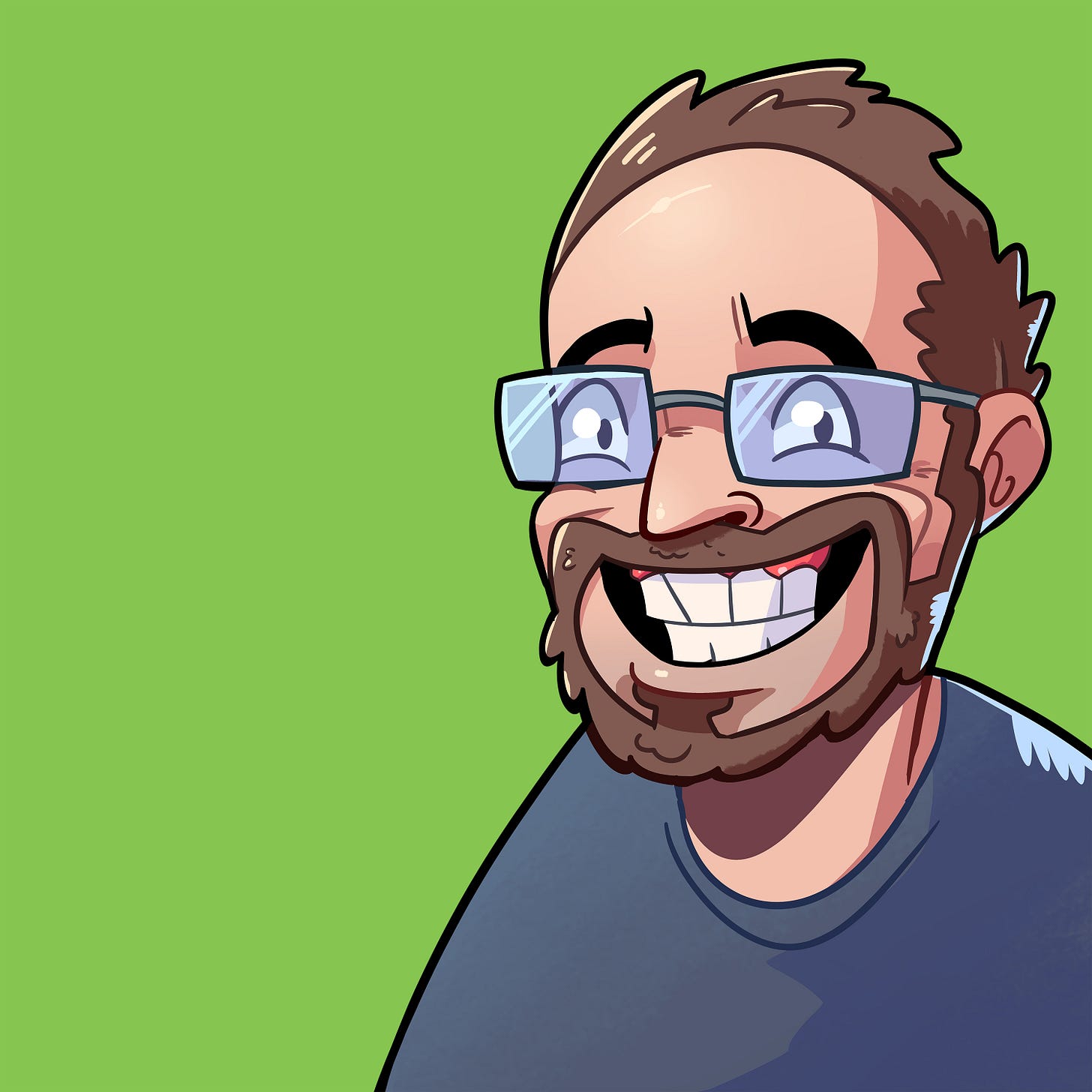
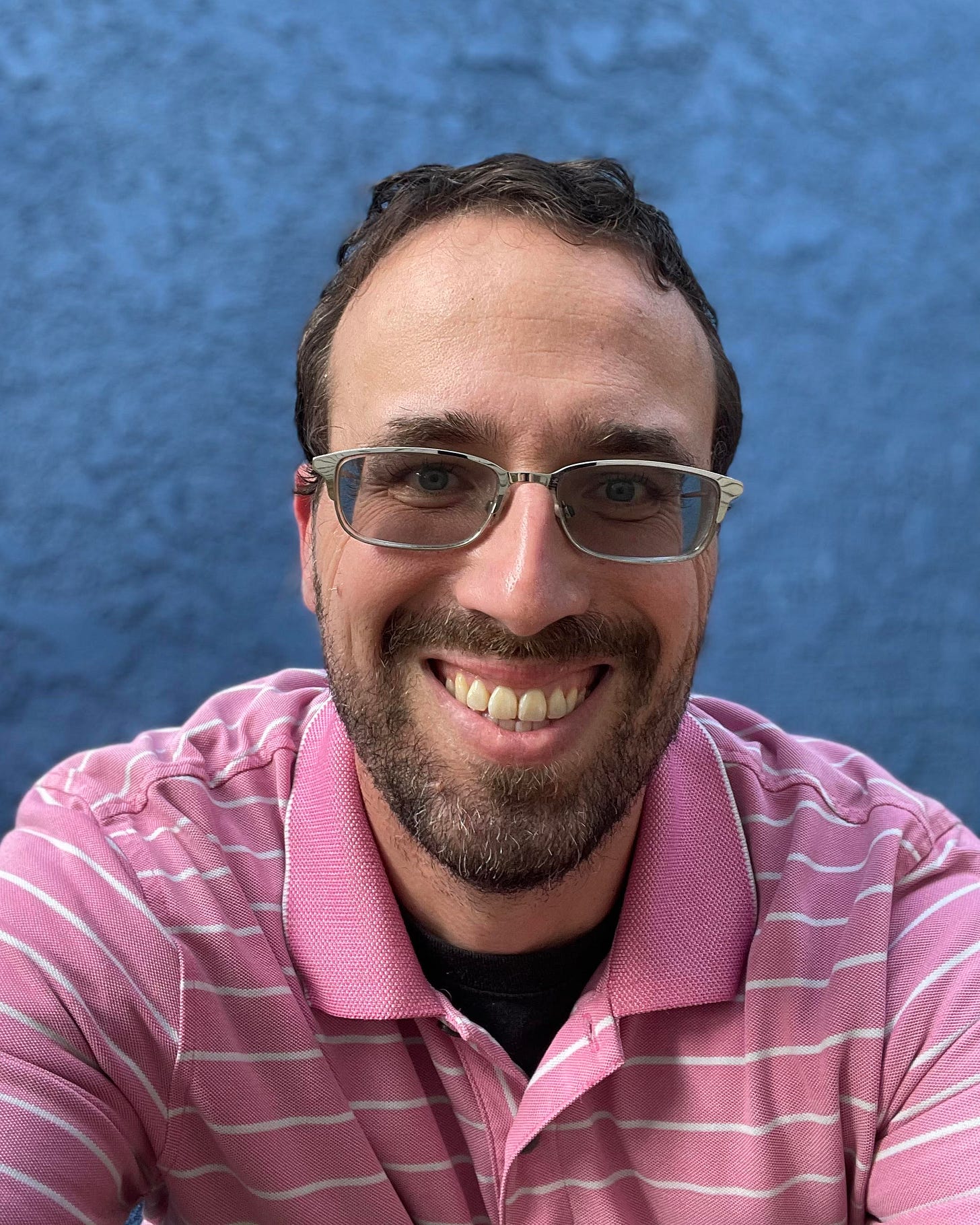
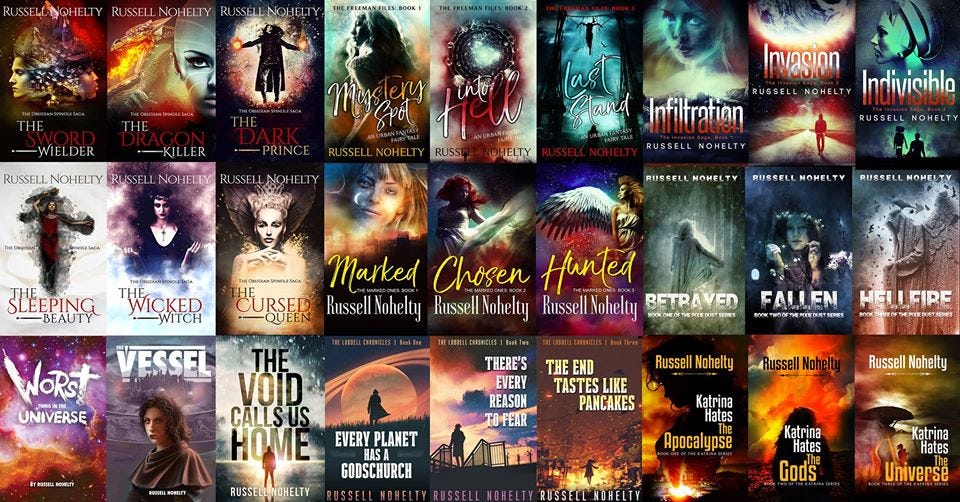
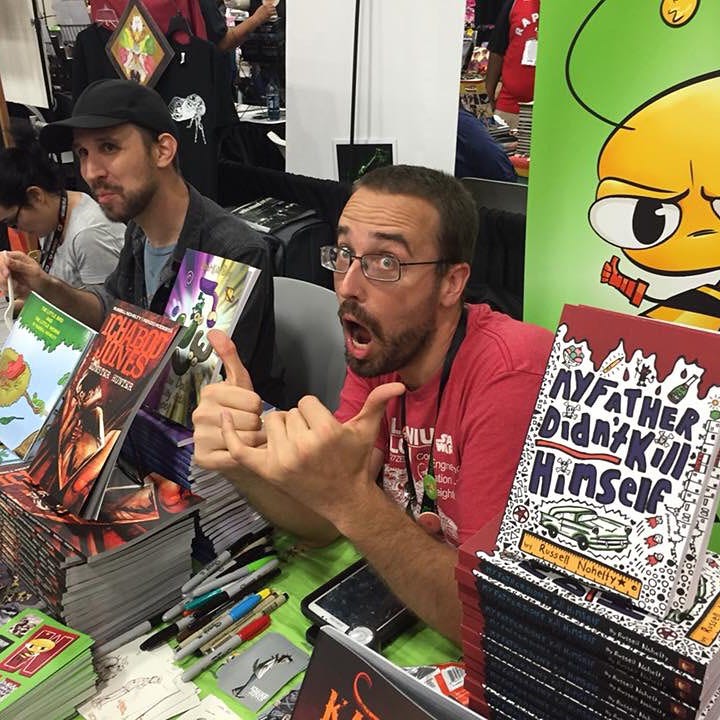




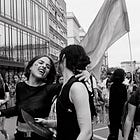
Thank you for your frank inteveiw and sharing information and other writers. It always reassuring, comforting and hopful when in the mist of some dark tunnel that there are others who struggle, and survive. Thanks again
This was a great read! Thanks for the shout-out, too!